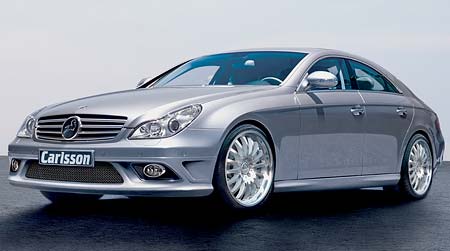
Jay Caspian Kang thinks John Henson should wear a muu muu and a fat guy hat. Follow him at twitter.com/maxpower51
In the summer after graduating from college, as part of my introduction to New York City, I took the A train down to the fabled West 4th Street basketball courts. All melancholy literary types are required to vividly remember, and then write about, their first encounters with The City and so I, too, can recall the heat that day and how it curled the edges of the wheat-pasted posters, pushing those sight-bending currents of hot air out of the subway exits. When I got to the courts, a middle-aged man with a camera around his neck told me that the league games had been delayed on account of the heat. Two lines of massive men in jerseys leaned up against the chain-link fence, occasionally looking up at the cloudless sky for some form of absolution, occasionally looking out at the court where some teenage kids were playing three on three. Two of the kids—how could I have not noticed?—were Asian. The game was a fundamental mess, just six guys scrambling around until one could find a dunking lane. After about five or six failed tries, one of the Asian kids managed to throw one down, eliciting a half-hearted chorus of oohs and aahs from the assembled crowd.
After a decently choreographed strut, this kid turned towards the chain-link fence and screamed, “Fuck yeah, n***a! You see me just dunk on that n***a?” Then, turning to his fellow Asian, he puffed out his chest and said, “N***a, this shit is over.”
No one the fence seemed to think this was strange or even worthy of comment. I, as they say, shat my pants.
Later, while wandering around an empty street in Flushing, I overheard two kids talking to one another in Korean. When I turned around, I saw that the kids were Black. They must have read the disbelief on my face for what it was—an ignorant outsider who was about to take a mental photo for his cultural tourism scrapbook—because they gave me a dirty look and crossed the street.
How did I, who, prior to moving to New York, had lived in Boston, North Carolina, Maine, Los Angeles and Seattle, make it to the age of twenty-three without having ever met an Asian-American kid who had grown up much differently from me? It’s true that I spent my childhood in nice, college towns and that my exposure to other Asian-Americans was limited to bi-monthly potluck dinners where all the alumni of my father’s high school would sit around and discuss God knows what, but I cannot help but wonder if this vacancy of identity might be the inevitable product of an entire generation of kids who were pushed directly into the structures of American success. Almost all the Asian-American kids who grew up with me have lost the ability to speak the native language of our parents. Our conversations with our grandparents are conducted in shouted commands and hand gestures. When we watch Old Boy or In the Mood for Love, we alternate between an unfamiliar, displaced pride in a connection we cannot quite delineate and the shame of having to access it through subtitles. This distance, at least for me, came from a desire to duck out from the traditional immigrant shelter of family and culture, and although it felt like a conscious choice at the time, I sometimes look around at my Asian-American friends who suffer from the same blind spots, and wonder if we might have had any say at all.
The truth is, I really don’t know.
If we, indeed, tell ourselves stories to live, the children of immigrants find themselves with the odd task of having to make one up as they go along. The stories projected upon me by my parents were episodic and told in a language of destinations. On the first page, my sister and I sit with the other pilgrims at the tabard. On the next page, we arrive at the Archbishop of Harvard’s door. What happens between those two markers is what a friend of mine once referred to as, “our leg in the blind sprint towards whiteness.” For him and me and the Asian-American kids I grew up with, the verbs and the adjectives in our narratives are disposable, circumstantial. What matters is the tyranny of nouns. If we see another Asian kid in the classroom or in the workplace, we simply assume that they got there the same way we did. Why bother asking? We are the Son-at-Harvard or Nephew-at-Columbia or the Son-who-works-at-Goldman or the Daughter-who-just-got-into-Stanford Medical School. When the weight of our common hyphens forces us into naming some other connection, we summon the only metanarrative we know, collected from our own memories and the commonalities we assume—fathers who are computer programmers or dry cleaners, insane mothers who only shop at Costco, piano lessons, Asian Church, pickled immigrant foods and 1500s on the SATs. For the most part, the metanarrative is enough.
The only stories that might make us pause and reconsider the paradigm of endings are the ones that provide us with an alien set of destinations—the stand-up comedian, the police chief, the mass murderer, the potential first round pick in the NBA Draft. In other words, those stories that belong to other races.
The lineage of Jeremy Lin isn’t found in racial pie charts or in the history of unlikely minorities in big-time sports. Yao, Ichiro, Wat Misaka and Eugene Chung are not his context. Neither is Hines Ward. Instead, to understand Jeremy Lin, we must look to Jin, the diminutive Chinese emcee from Jackson Heights who, for seven weeks, dominated the Battle Stage on BET’s 106th and Park.

As is true with Jeremy Lin, it mattered that Jin was American born, it mattered that he was competing in front of a mostly Black crowd on BET and it mattered that he was doing it with lines like, “If you make one joke about rice or karate/NYPD be in Chinatown searching for your body.” When Wyclef ruined his career by trying to turn him into a dance-happy club bopper, it mattered that Jin told ‘Clef to fuck off and went straight back to battle raps. More than all that, though, it mattered that Jin was legit, succeeding in the closest thing the music industry has to a meritocracy. And although Ruff Ryders probably envisioned some DOA Eminem experiment when they signed him, it mattered that Jin was better than the pigeonhole. He wasn’t a short-lived anomaly or even some college radio act fueled by a disastrous vision of cultural tourism. He was a battle rapper and even after his run on 106 and Park and his album flop, he kept appearing on battle DVDs and he kept winning.
Yes, he probably inspired a few Asian kids to see a rap career as a real possibility, but Jin represented more than another against-all-odds Asian success story. He wasn’t Connie Chung or Gary Locke or Jerry Yang, who, regardless of their intentions, confirm the country’s racial math. Jin went Black. In doing so, for those of us who were heeled on the mantra of assimilation, who have grown weary of the race towards whiteness, who have lived our lives in the strange space of identifying with hip-hop’s stories of racial oppression, but who have never really felt that our own stories could live up to the comparison, Jin’s bravado and skill offered an alternative interpretation of what it meant to be an Asian-American.
Try to understand, most of us, at some point in the race, have wanted to turn around and start running the other way.
What, then, do you do with Jeremy Lin? Through no fault of his own, Lin stands at a bombed-out intersection of expected narratives, bodies, perceived genes, the Church, the vocabulary of destinations and YouTube. The Son-at-Harvard of a computer programmer from Palo Alto by way of Taiwan, Jeremy Lin is the metanarrative, and yet, without having done anything but dunk a basketball, his unwitting doppelganger waves a flag on the other side. If basketball doesn’t work out, Lin has said he would like to become a pastor, citing his family’s long-time devotion to the church. But in the spray-shot saloon of professional athletes and public assumptions, no place is more sinful than his first career choice: the NBA. Of course, it doesn’t even need to be said that none of these things, are, in fact, contradictory, but Lin’s story has already been taken over by writers, bloggers and fans who feel the need to distort, tweak and primp him up into a perfect metaphor.
In those hands, we are all absurd and riddled with contradiction. As perfectly as Jeremy Lin might fit inside our expectations for Asian-Americans, the reason for his sudden celebrity goes outside of the cultural matching game his fans play when they compare Jeremy Lin’s story to their own. There have been other Asian-American athletes who have excelled in other sports, only to elicit little to no response from the community. Across the Bay from Lin’s hometown of Palo Alto, Kurt Suzuki just turned in the best season of any position player on the Oakland A’s. A little way down the 101 in San Luis Obispo, Chris Gocong’s Philadelphia Eagles jersey hangs in the locker room at Cal Poly. Hines Ward was Super Bowl MVP and a possible Hall of Famer. So why does Jeremy Lin, shooting guard for the Harvard Crimson, repeatedly sell out gyms across the country?
It’s mostly about the dunks. The attention surrounding Lin has exploded this year, not because he’s playing any better than he did last year or because anyone cares about Harvard basketball, but because of the clips that have started circulating around youtube and sports websites that show Jeremy Lin dunking all over Georgetown, Boston College and UConn. Without this footage, which is studied with an almost anthropological zeal on some Asian-American sports blogs (yes, they exist), Jeremy Lin would be nothing more than a nice human-angle story, another kid from unexpected origins who was making the best of his God-given ability.
In one of his most watched YouTube clips, Lin sprints back on defense and swats a dunk attempt by UConn’s Jerome Dyson. In the clip’s caption, Dyson is described as “Jerome Dyson, projected 2nd round pick in the 2010 draft.” For the author of the caption, the equation is clear: Jeremy Lin not only can play, but he has the hops to youtube a guy who will one day be playing in the league, and not some white kid from Dartmouth, but a bona-fide African-American athlete.
Therefore, by the transitive property, Jeremy Lin can also play in the league.
With its giants in skimpy uniforms, basketball allows us to see, clearly and plainly, the differences between us, the fans, and the athletes on the floor. Our perception of those bodies is driven by antiquated, but overwhelmingly accepted ideas of race. Dwight Howard is described as the winner of a “genetic lottery.” Lebron is either “otherworldly” or “superhuman,” whereas Steve Nash’s success comes from his ability to “overcome his athletic limitations.” When confronted with the task of placing their man on either side of the divide, Jeremy Lin’s fans, who have spread their research out across message boards and sports blogs, point out his breakaway speed, his vertical leap, his deceptive height. What they do not discuss is his jump shot, his free-throw percentage or his ability to throw a crisp bounce pass. Somewhere in the endless comparisons, odd personal anecdotes about meeting the man, and obsessive odes to Lin’s musculature, these fans have placed an implicit caveat onto his story: if he makes it to the league and plays a White game, this will all be for nothing.
Unfair, yes. But those of us trapped within the metanarrative have been conditioned our entire lives to imagine White. Like Jin before him, what Jeremy Lin represents is a re-conception of our bodies, a visible measure of how the emasculated Asian-American body might measure up to the mythic legion of Big Black supermen.
Within that singularly American calculus, it’s not about basketball at all. It’s about our fucked up anthropology.
















No comments:
Post a Comment